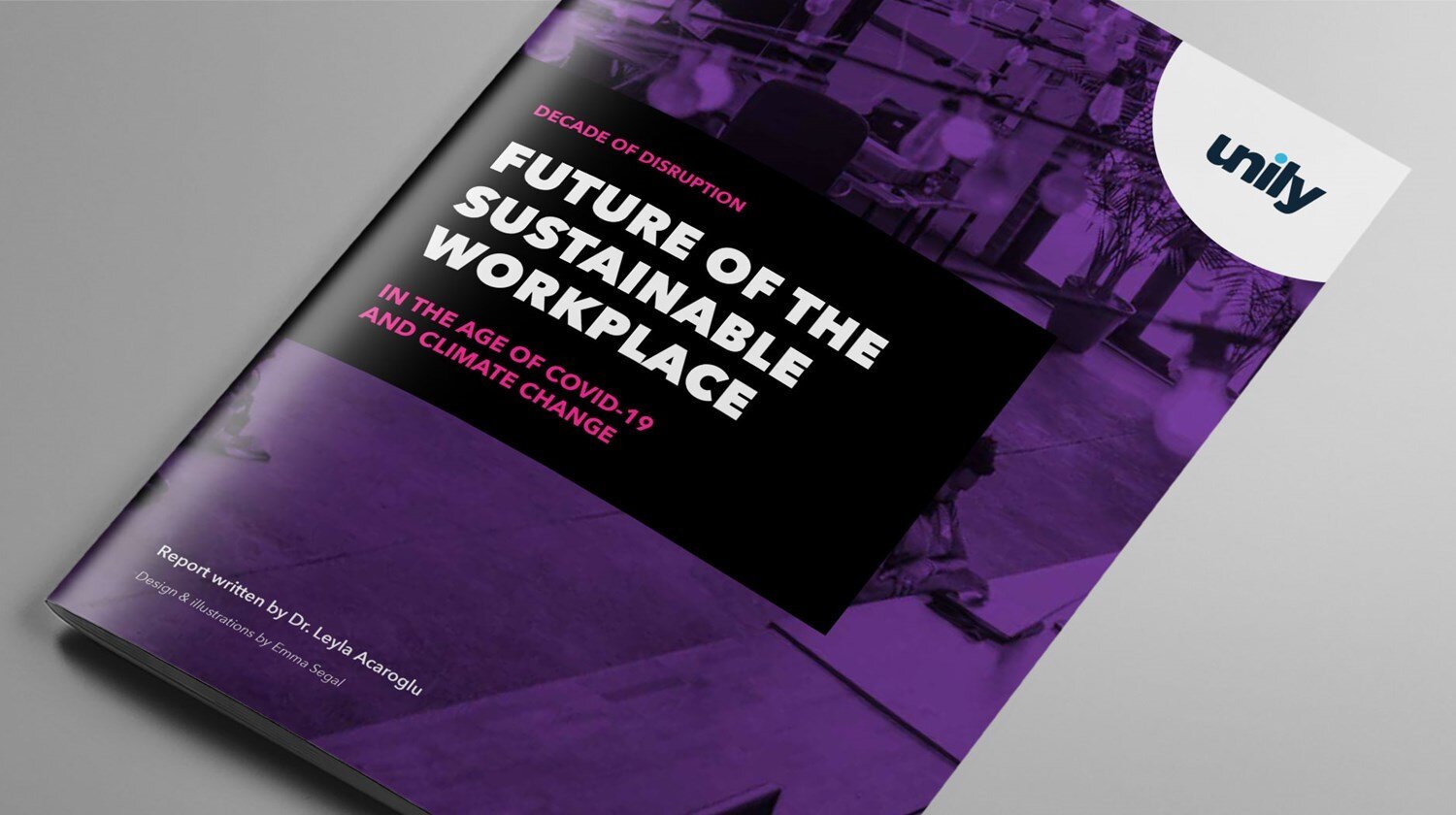Unily
DESIGN - ILLUSTRATIONDECADE OF DISRUPTION
FUTURE OF THE SUSTAINABLE WORKPLACE IN THE AGE OF COVID-19 & CLIMATE CHANGE
Disrupt Design was commissioned by Unily to develop this open source 85-page fully illustrated report. It explores the forces driving change in how we work, the megatrends affecting this decade, and the impacts of massive disruptions like Covid-19 and climate change on the workplace.
The report offers a 360 degree perspective of the trends and forces influencing the transition towards sustainability in the workplace. It explores the opportunities and actions that are currently emerging as the defining forces which are shaping the transition to carbon positive and sustainable workplaces.
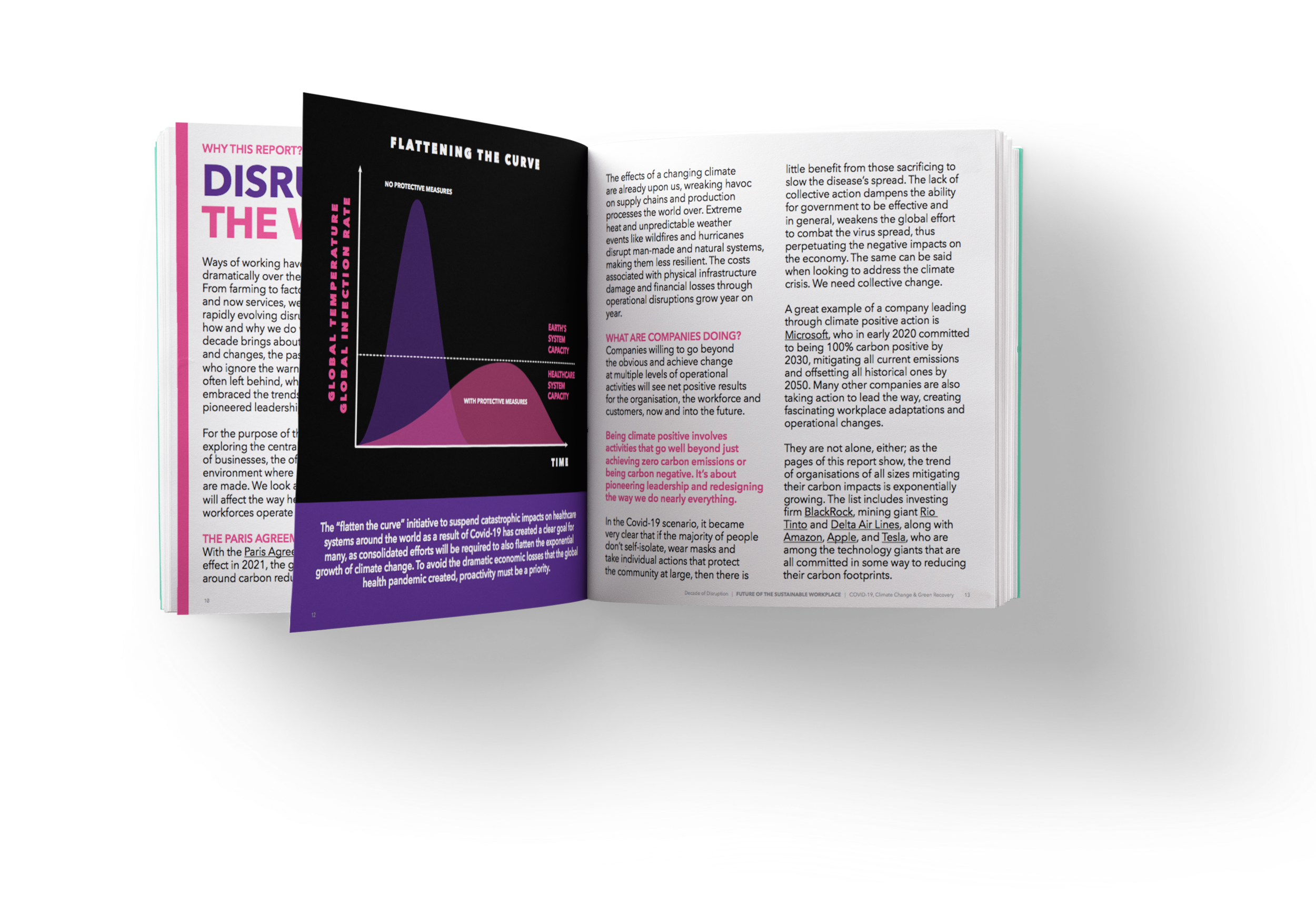
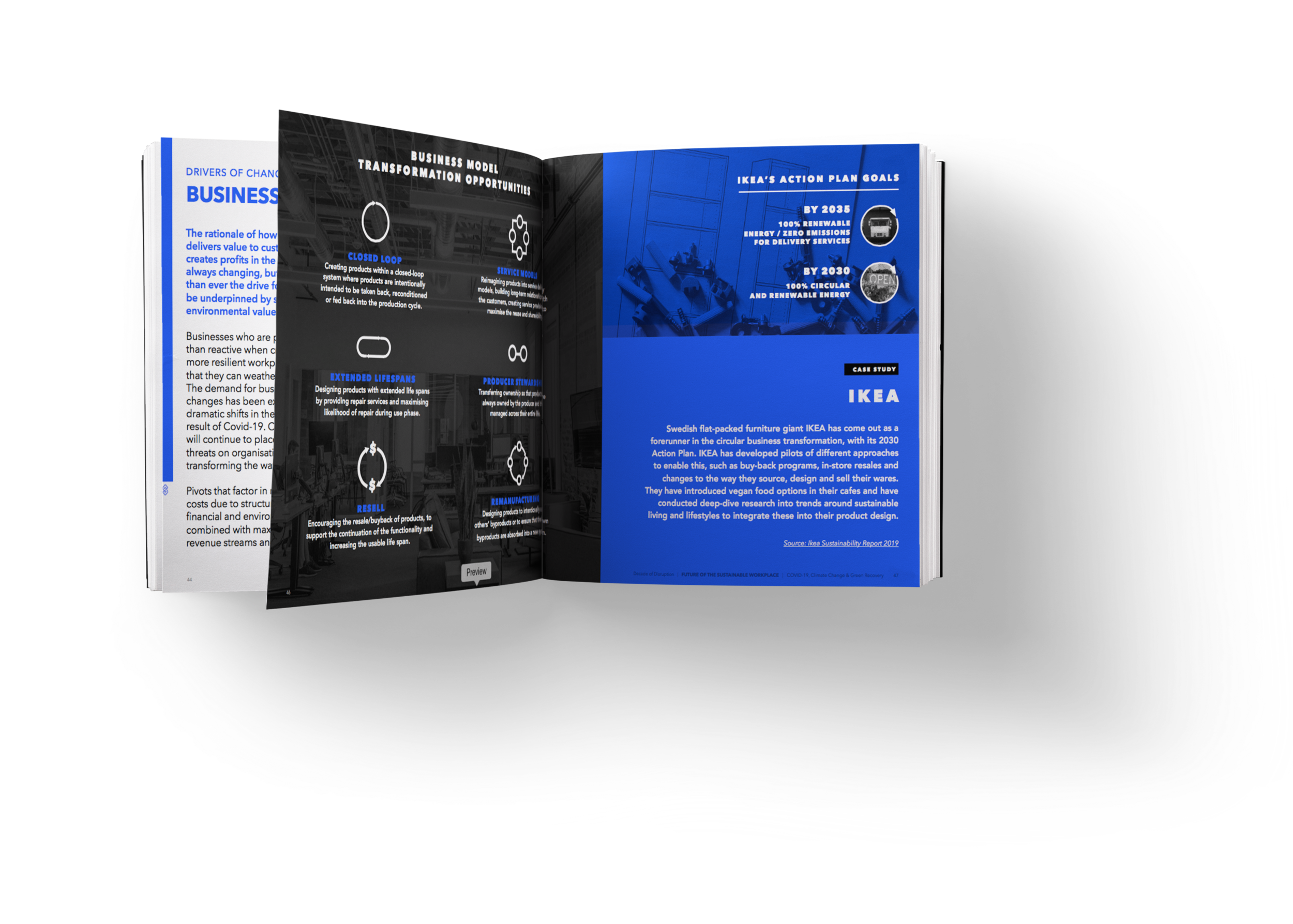
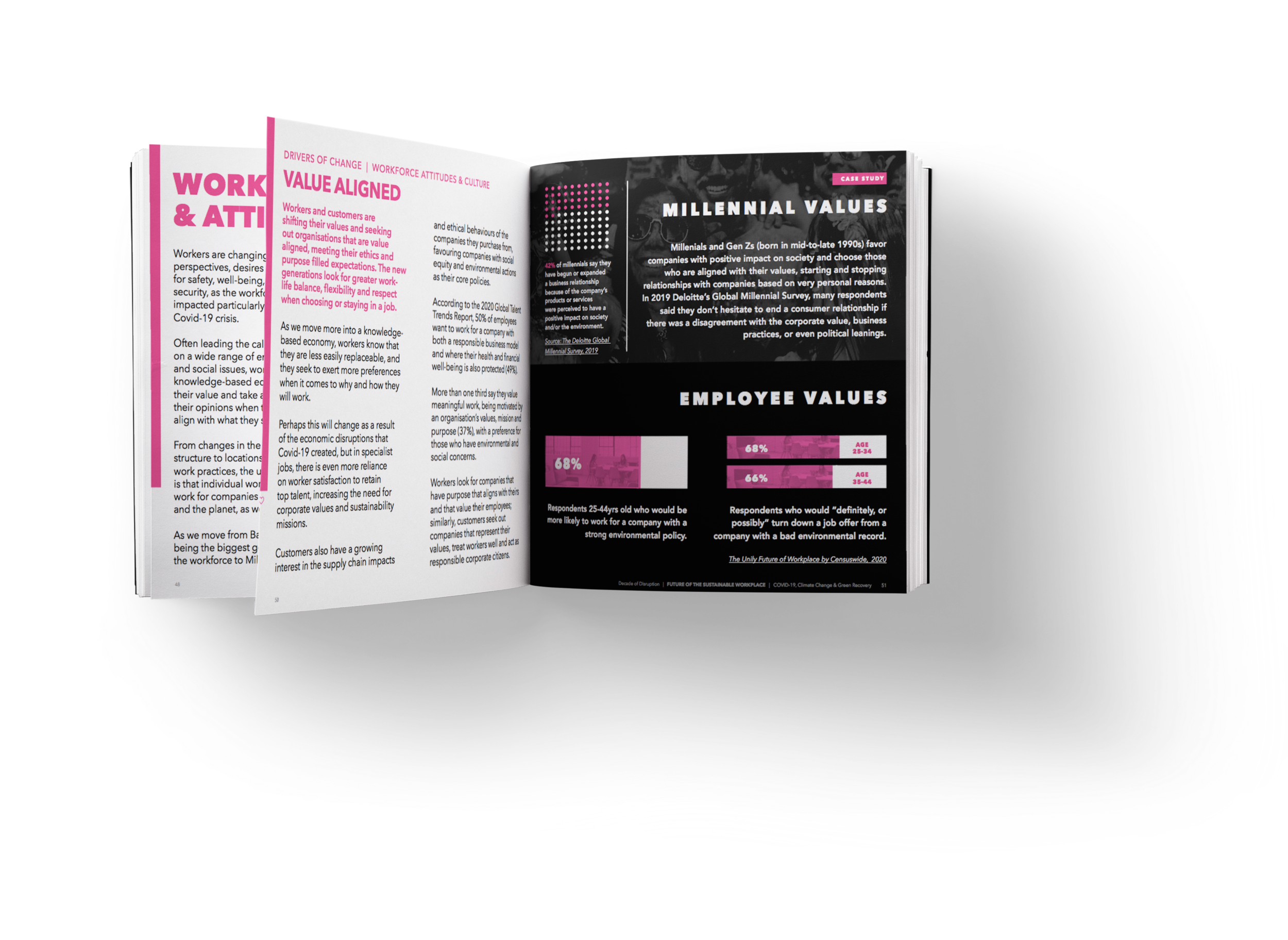
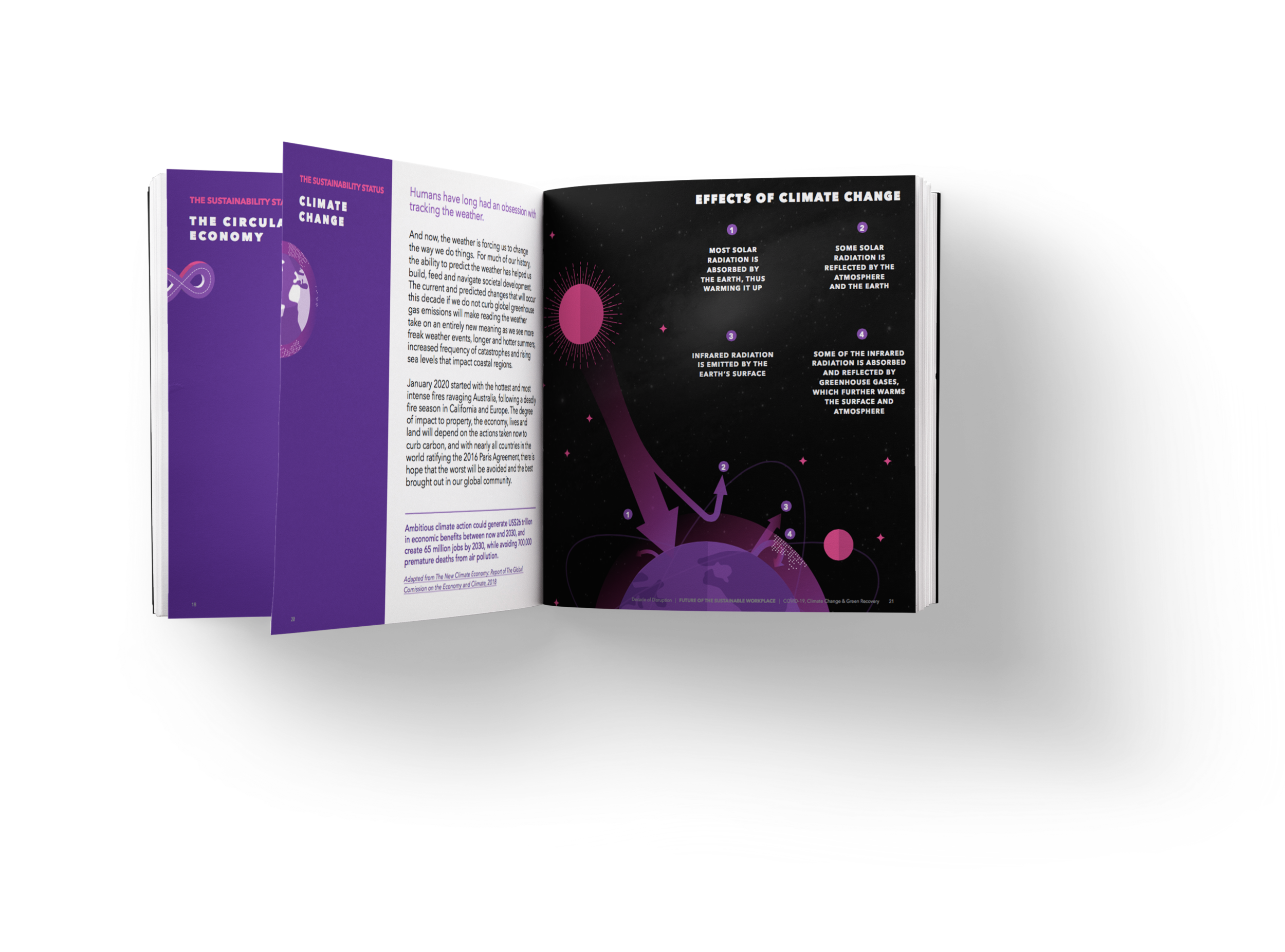
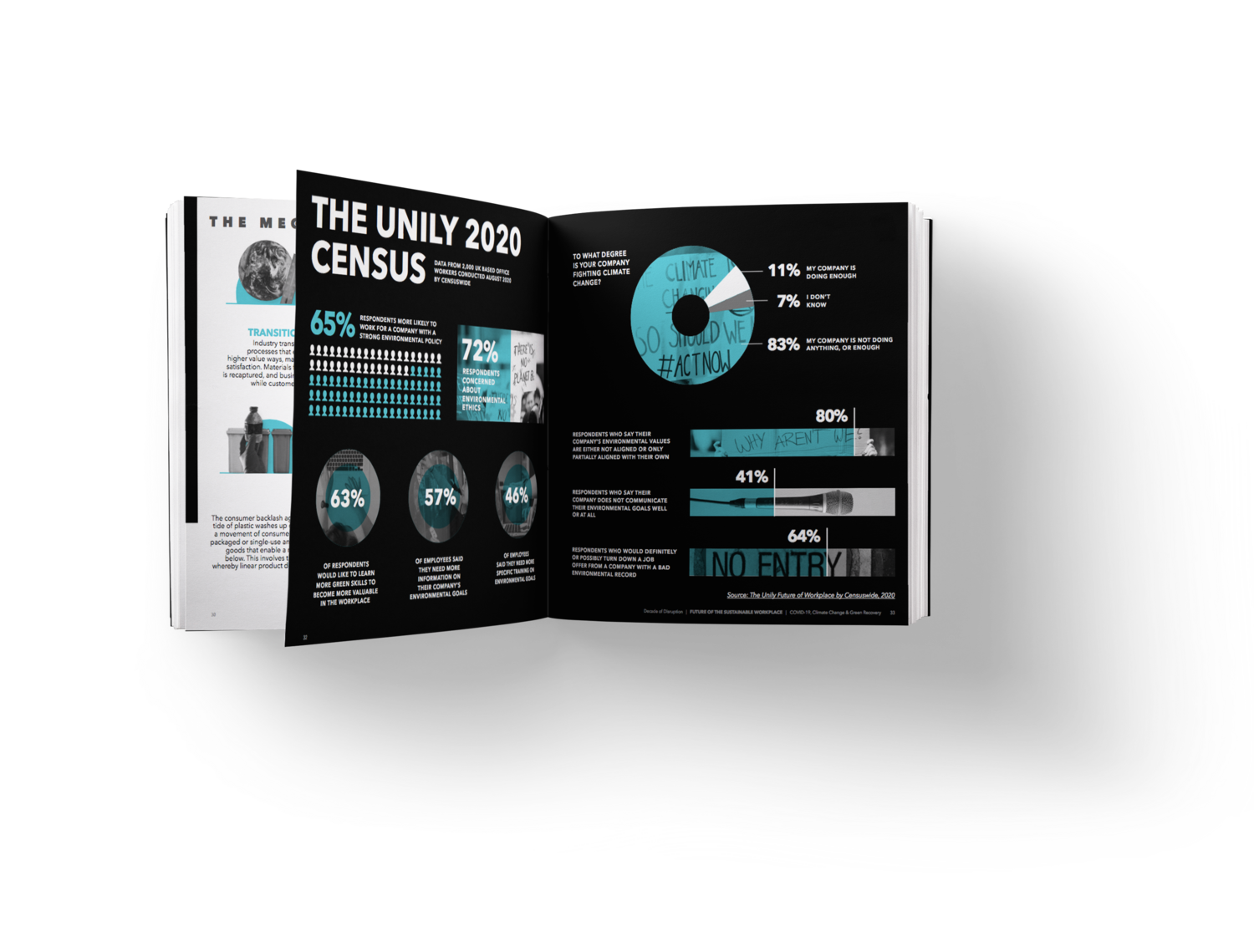
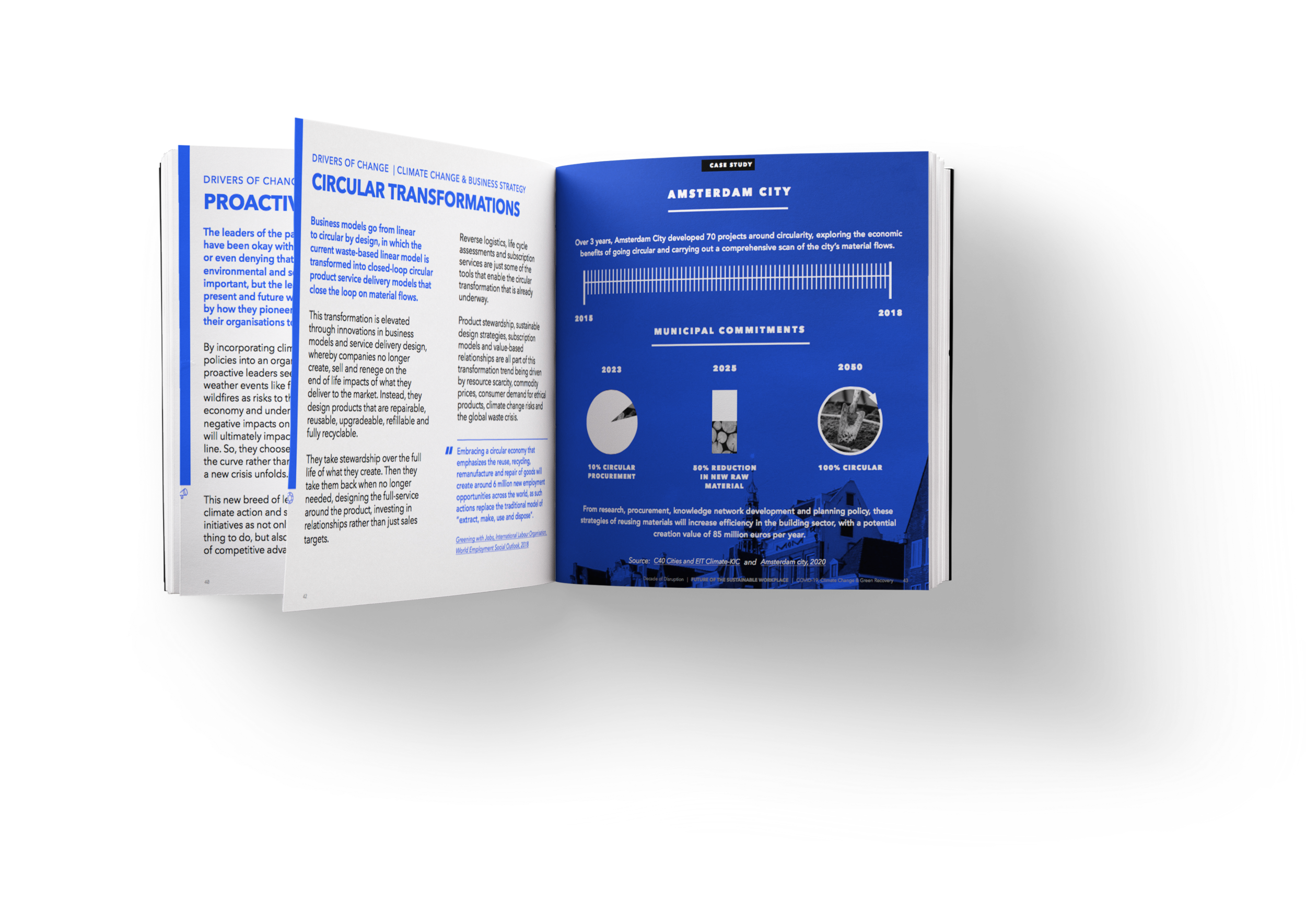
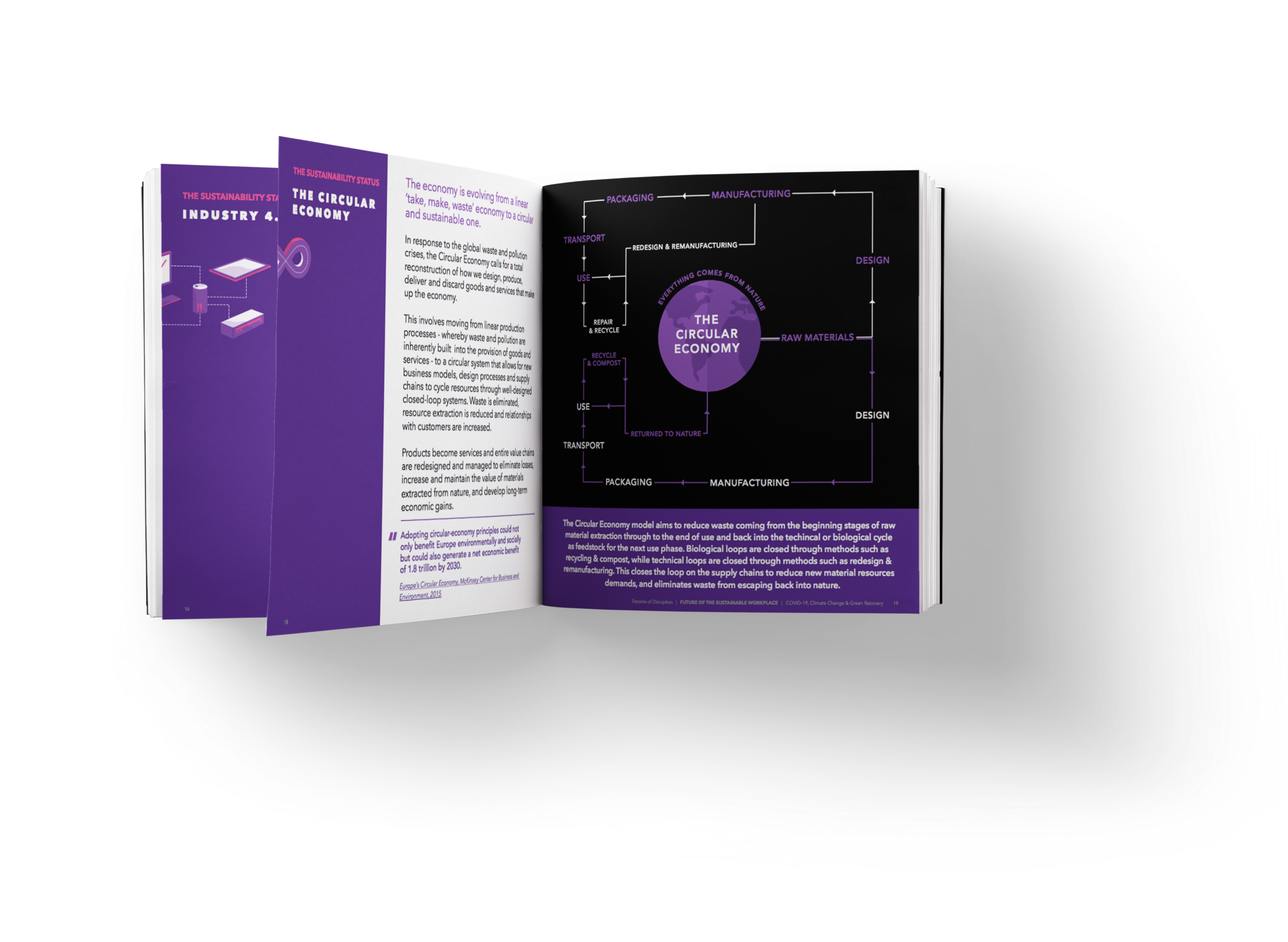
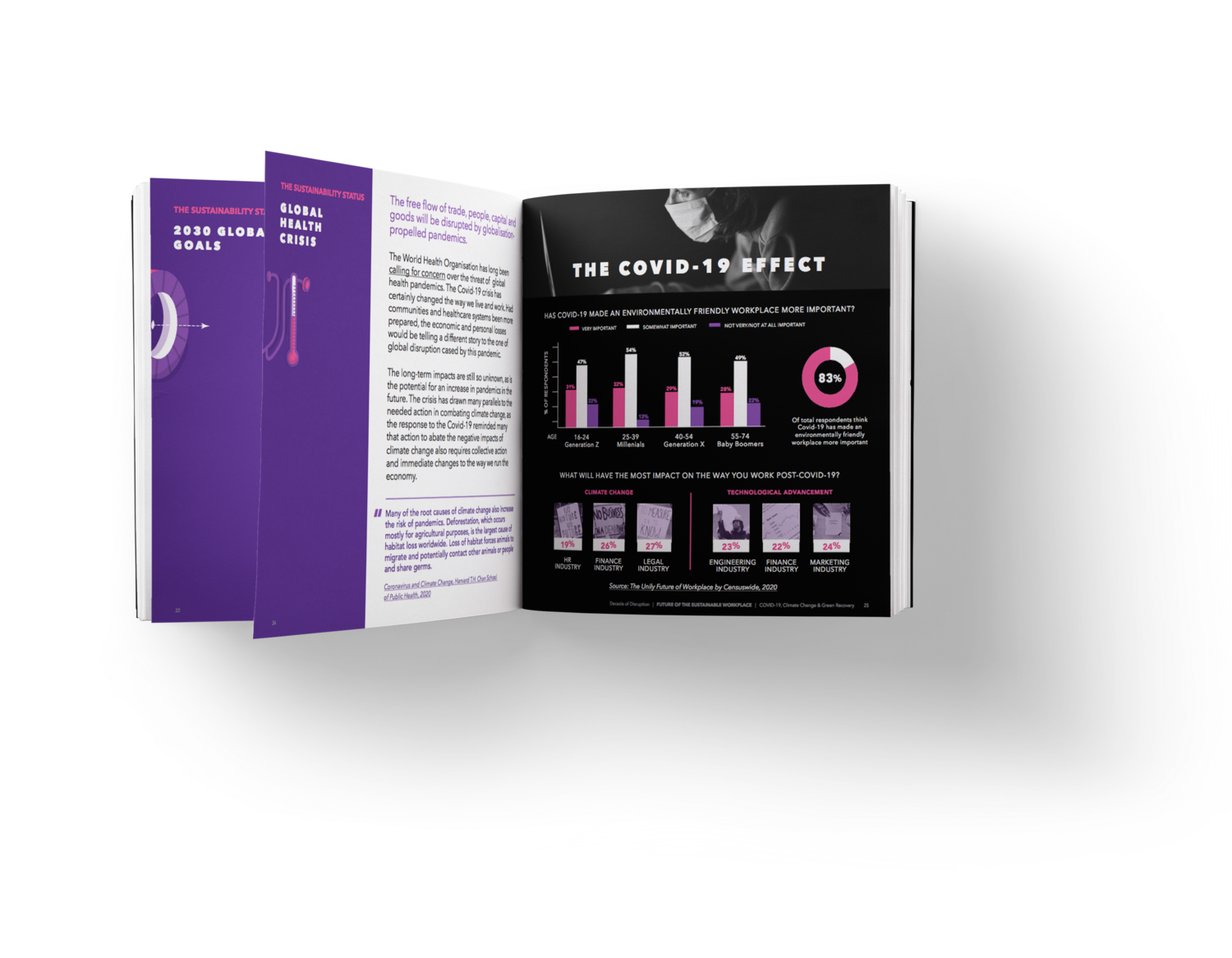
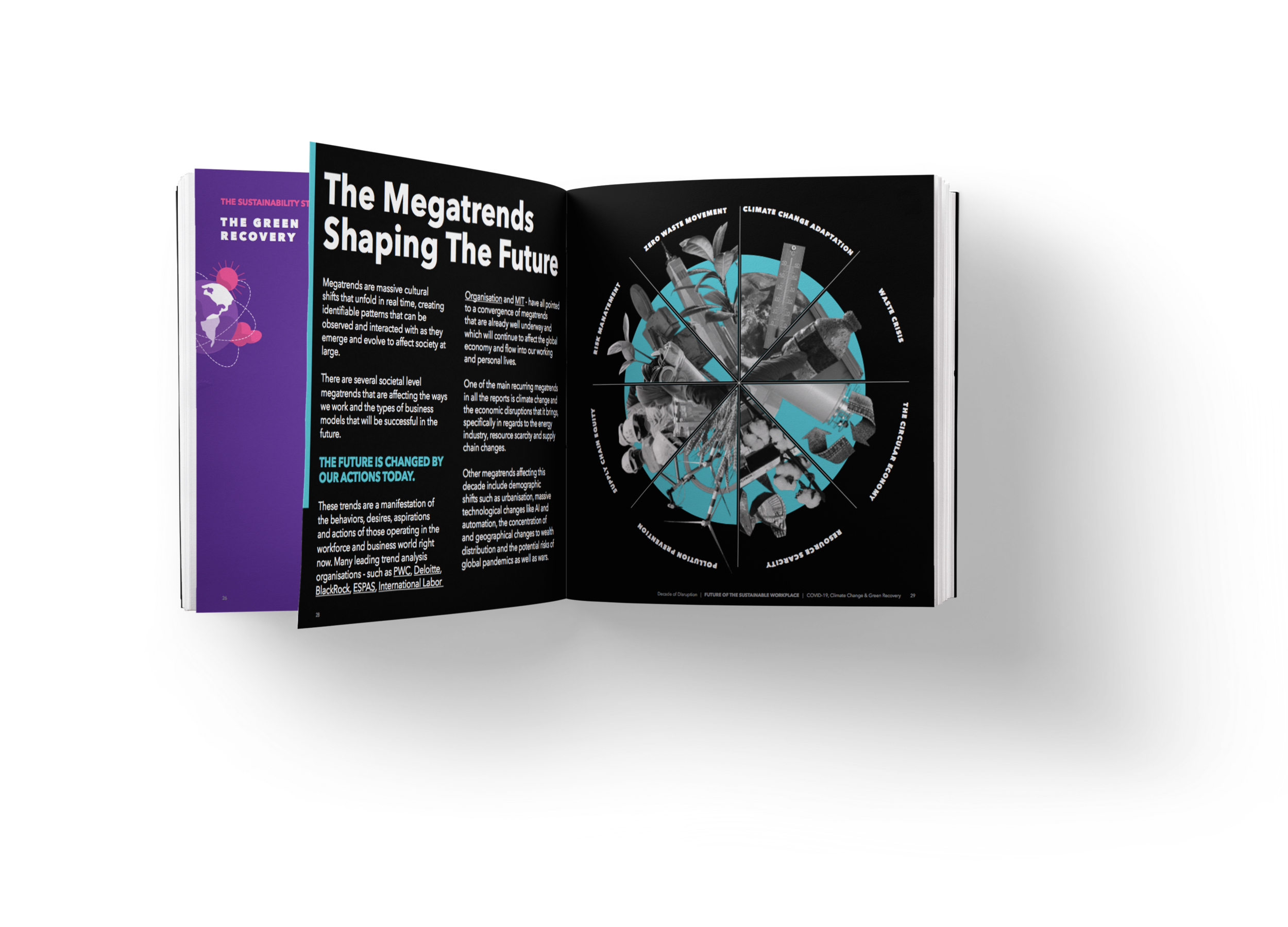
This trend report is designed to support business leaders to adapt. Through trend analysis, employee surveys, expert interviews and case studies, forces affecting the future of workplace sustainability are revealed within the report, which is divided into three main sections: a highlight of the six relevant megatrends predicted and already emerging as a major influencer this decade; a detailed exposition of 12 micro forces driving these megatrends and how they relate to the workplace and shifts within business operations; and a diagnostic toolkit and maps for business managers to assess and adjust where they are on their sustainability journey.
This reportExplores the megatrends and emerging micro forces that are defining the drivers for change this decade, from this current critical crossroads where climate change and Covid-19 are forcing strategic recovery plans
Examines what is already underway in bringing about a sustainable future, as well as offers a unique business self-assessment tool that helps organisations assess where they are at, so they can transform into a sustainable workplace
Expands on the rising concern among workers about the impact of the companies that they are working for. Data from the report’s survey of 200 British workers [conducted by Censuswide] shares that 72% of respondents are concerned about environmental ethics, 83% feel that their companies aren’t doing enough and 63% want more green skills to strengthen their workforce value
The Process
We followed the Disruptive Design Method (DDM) for this project. The DDM is a three-part process that explores complex issues from a three-dimensional perspective, incorporating research, stakeholder exploration, systems thinking, designed interventions, ideation and creative development. It incorporates research and problem exploration (Mining Phase), systems thinking and modes of interventions (Landscaping Phase), and then ideation and creative development (Building Phase). We work collaboratively with our clients to come up with the best fit solution for their specific contexts.
-
The research underpinning this report explored the topics of climate change, business transformation drivers, the generational shift in values. It explores the myriad of mega trends that are driving change within this decade as they have unfolded. Our mining phase involved 3-4 months of desk research, followed by interviews with key stakeholders and industry experts to inform our work.
During the mining phase, our team often expands and works collaboratively to bring in researchers and varied perspectives. We have a wonderful community of experts who we can turn to when the project demands it, and this was one of those instances.
We aimed to construct the report through the lens of business operations in established markets, exploring the impacts to the offices, HQs and central nervous systems of industry.
We looked closely at what types of important impacts are currently and will need to occur to adapt to the changing climate and the greening of business operations this decade.
-
Through trend analysis, employee survey, expert interviews and case studies, we identified the forces affecting the future of workplace sustainability.
We explored the megatrends and emerging micro forces that are defining the drivers for change this decade, from this current critical crossroads where climate change and Covid-19 are forcing strategic recovery plans.
We dove into what is already underway in bringing about a sustainable future, as well as offering a unique business self-assessment tool that helps organisations assess where they are at, so they can transform into a sustainable workplace.
We also wanted to expand on the rising concern among workers about the impact of the companies that they are working for.
Data from the report’s survey of 200 British workers [conducted by Censuswide] shares that 72% of respondents are concerned about environmental ethics, 83% feel that their companies aren’t doing enough and 63% want more green skills to strengthen their workforce value.
-
The final report is presented in 3 parts. The first explores a highlight of the six relevant megatrends predicted, and are already emerging as a major influencer this decade.
The second provides a detailed exposition of 12 microforces driving these Megatrends and how they relate to the workplace and shifts within business operations. The third section provides a diagnostic toolkit for business managers to assess where they are on their sustainability journey, with a detailed set of maps of where to go from here to keep you ahead of the pack.
Design Considerations
As with all our projects, we went through the design and discussion phase of presenting our clients with different colour options, deciding what would fit, and worked collaboratively on the final output.
We intentionally designed eye-catching and bold graphical representations of the data to increase readability and uptake. We chose a colourful, non-traditional colour story, and bold graphic style to differentiate it from traditional environmental reports, reflecting the bold and vibrant options that lay ahead.
We ensured that the finished report could be easily shared on social media with the aim to increase amplification.
In addition, we built a visual diagnostic toolkit to help businesses identify where they are at in their current journey and the actions to take ahead. The presentation of the diagnostic kit was inspired by the fun quizzes from the backs of magazines, to make it less like ‘work’ while still maintaining its purpose as an engaging, entertaining data-driven tool.

